Find Help
More Items From Ergsy search
-
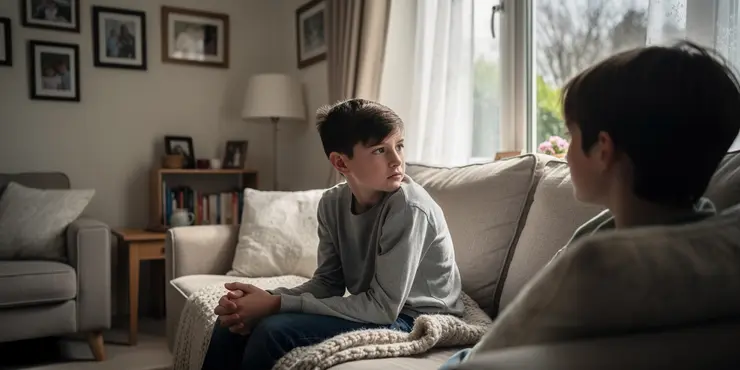
What type of anxiety do children and teenagers experience?
Relevance: 100%
-
Can children and teens have health-related anxiety?
Relevance: 61%
-
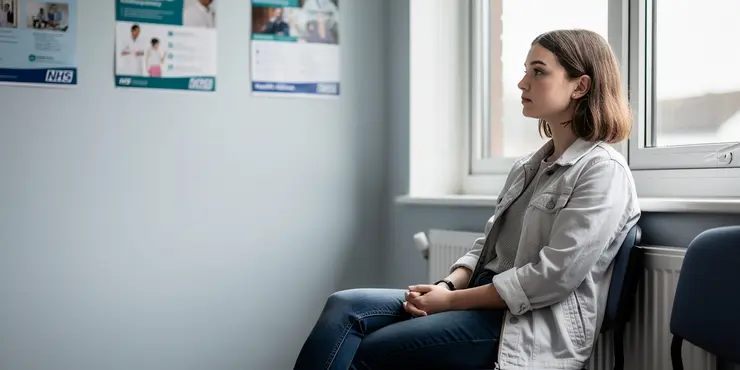
Short Films About Mental Health - Anxiety
Relevance: 45%
-
How can I tell the difference between normal teenage secrecy and potential grooming?
Relevance: 44%
-
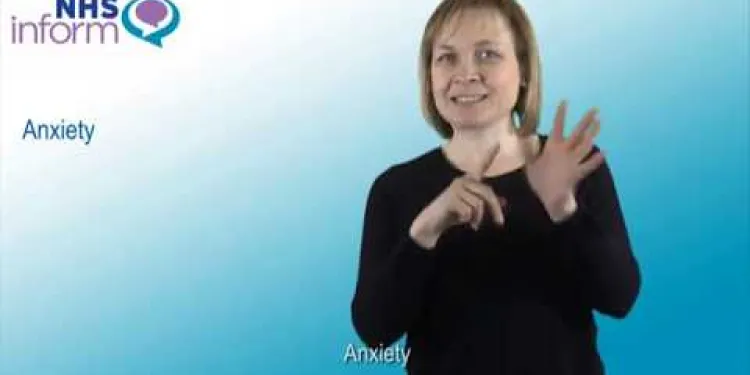
Generalised anxiety disorder (GAD)
Relevance: 40%
-
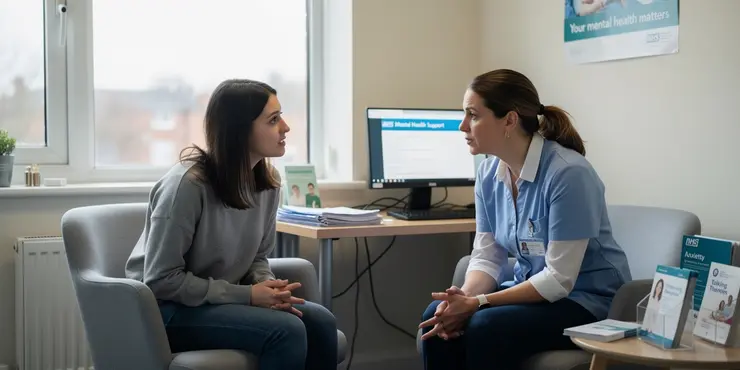
Anxiety | NHS
Relevance: 39%
-
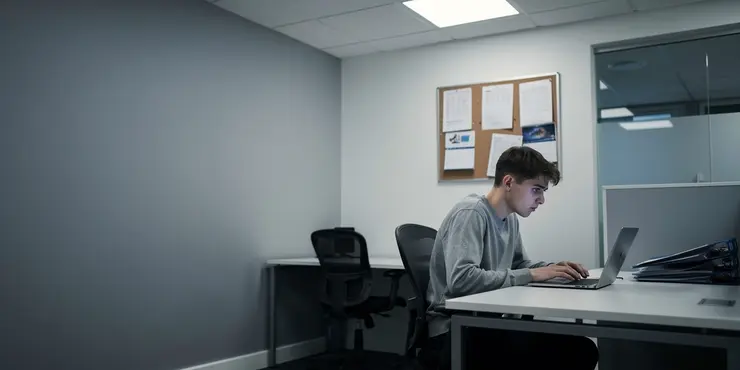
Anxiety in young people
Relevance: 38%
-
What is health-related anxiety?
Relevance: 37%
-
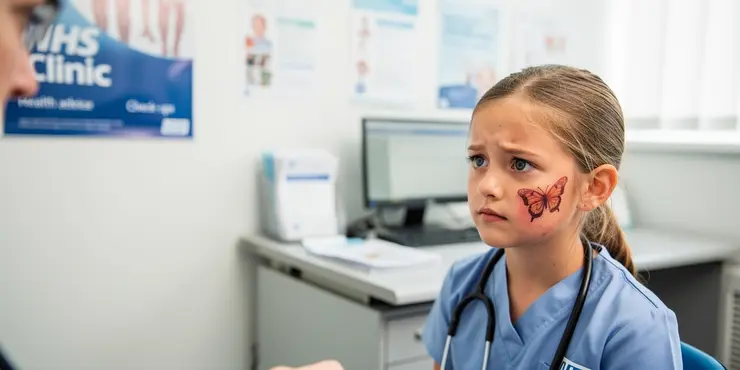
What are the common symptoms of lupus in children?
Relevance: 37%
-
How is health-related anxiety different from general anxiety?
Relevance: 36%
-
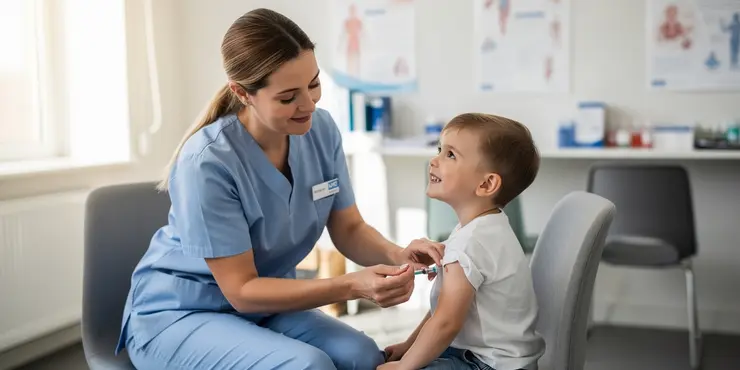
Children's Vaccination Schedule
Relevance: 36%
-
What is health related anxiety?
Relevance: 35%
-
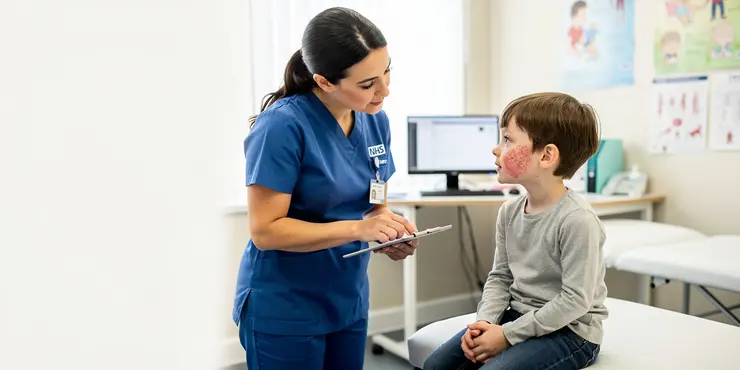
Lupus in children | NHS
Relevance: 35%
-
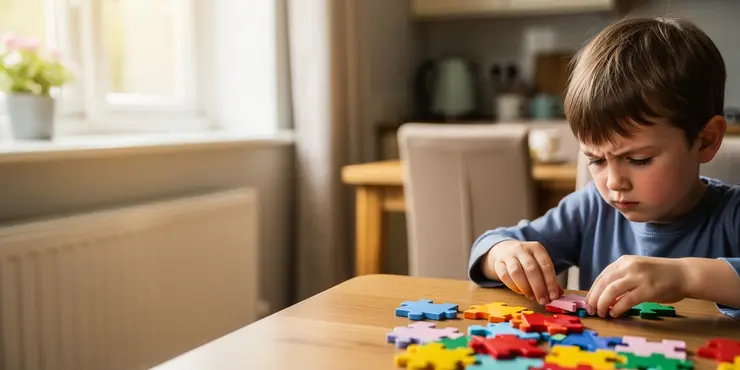
Why do some children stammer?
Relevance: 35%
-
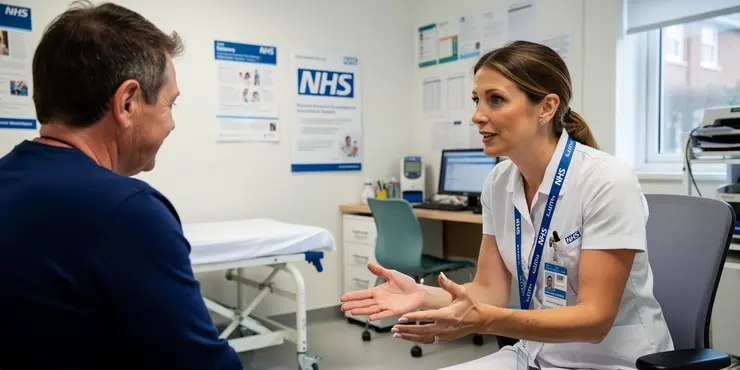
Treating anxiety and depression - www.slam.nhs.uk
Relevance: 34%
-

Why are teenagers and young adults recommended to get the MenB vaccine?
Relevance: 34%
-

Coping with Stress and Anxiety
Relevance: 34%
-
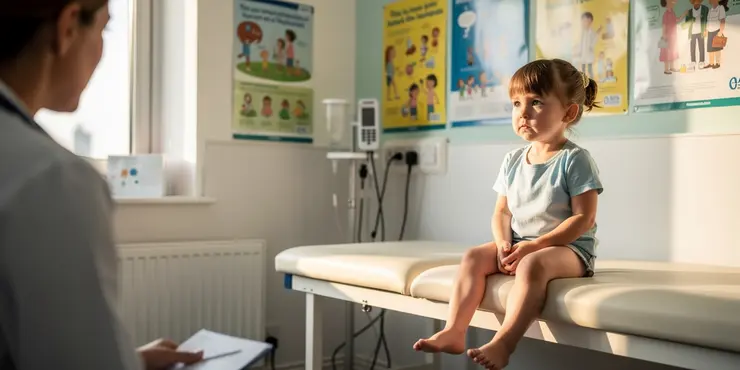
Can children use Mounjaro?
Relevance: 34%
-
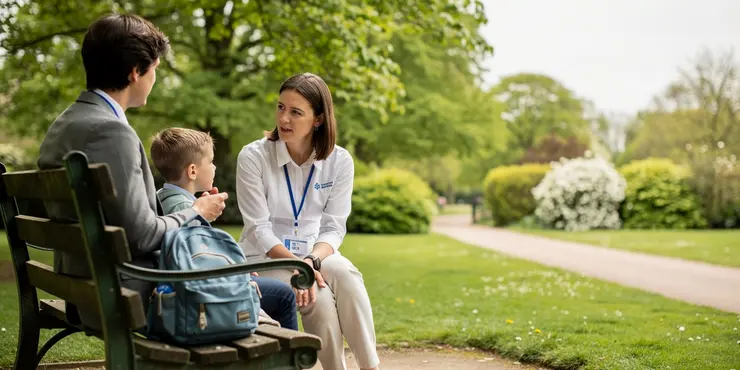
Understanding Mental Health in Children
Relevance: 34%
-
Is medication effective for health-related anxiety?
Relevance: 33%
-
Is health-related anxiety a common condition?
Relevance: 33%
-
What causes health-related anxiety?
Relevance: 33%
-
How is health-related anxiety diagnosed?
Relevance: 33%
-

New Mental Health Strategy Launched to Address Youth Anxiety Epidemic
Relevance: 33%
-
Can health-related anxiety affect relationships?
Relevance: 32%
-

Can Music Therapy Be the Key to Reducing Anxiety?
Relevance: 32%
-
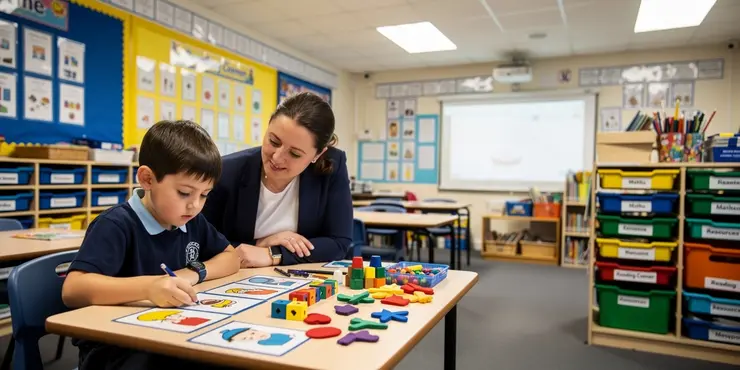
What are SEND children?
Relevance: 32%
-
What are common treatments for health-related anxiety?
Relevance: 32%
-
Are there self-help strategies for managing health-related anxiety?
Relevance: 32%
-
What are common symptoms of health-related anxiety?
Relevance: 31%
-
How does cognitive-behavioral therapy help with health-related anxiety?
Relevance: 31%
-
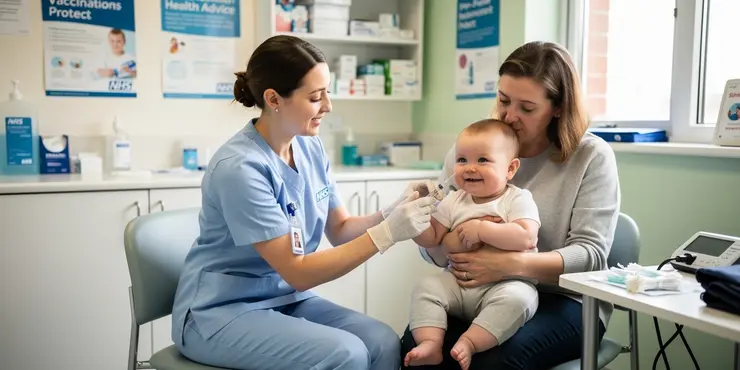
At what age should children receive the meningococcal vaccine?
Relevance: 31%
-
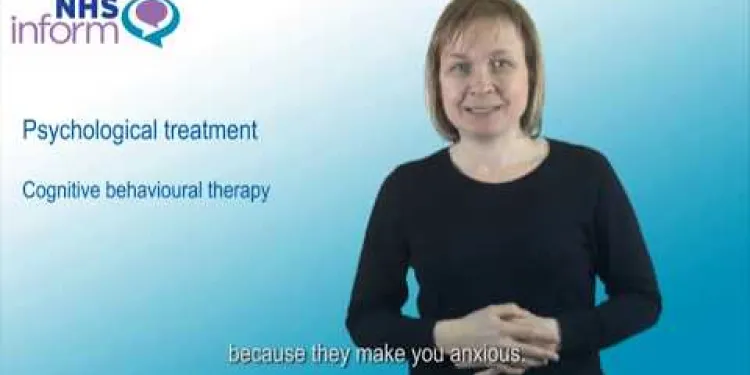
Treating generalised anxiety disorder (GAD)
Relevance: 31%
-
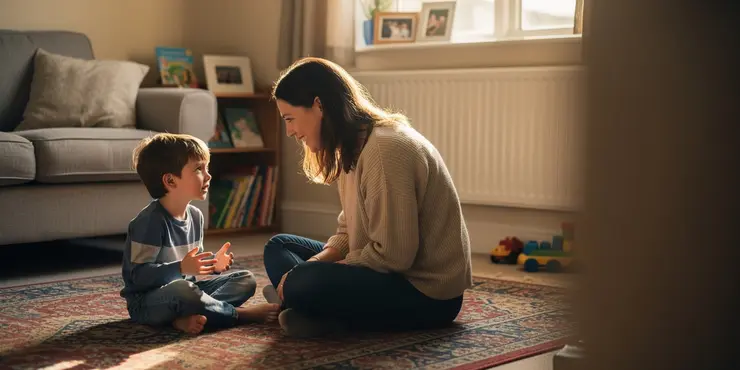
Practical strategies to support young children who stammer
Relevance: 31%
-
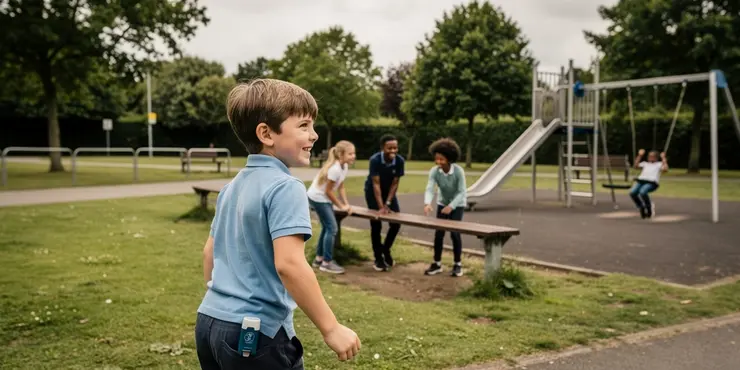
Can children outgrow asthma?
Relevance: 31%
-
Can health-related anxiety cause physical symptoms?
Relevance: 31%
-
Why is reassurance not always helpful for health-related anxiety?
Relevance: 30%
-
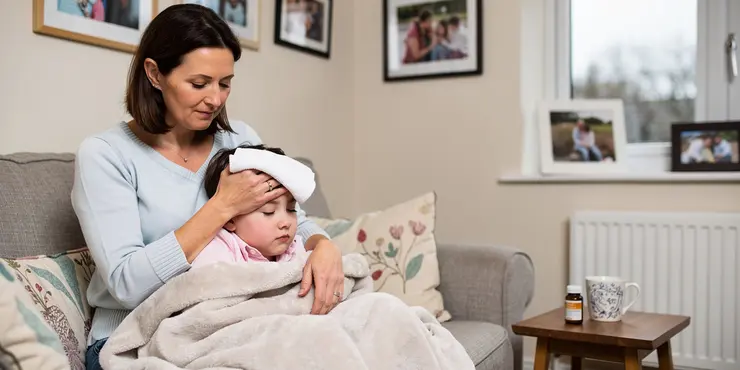
Which medication should be avoided for children with fevers?
Relevance: 30%
-
Is it possible to fully recover from health-related anxiety?
Relevance: 30%
-
Can lifestyle changes help with health-related anxiety?
Relevance: 30%
Understanding Anxiety in Children and Teenagers
Generalised Anxiety Disorder (GAD)
Children and teenagers with Generalised Anxiety Disorder (GAD) often experience excessive worry about various aspects of daily life, including school, social interactions, family issues, and health concerns. This continuous state of anxiety can manifest in physical symptoms such as headaches, stomachaches, and sleep disturbances. GAD can significantly impact their overall well-being and academic performance.Social Anxiety Disorder
Social Anxiety Disorder is characterised by an intense fear of social and performance situations. Children and teenagers may dread events where they are the center of attention or where they fear being judged by others. Symptoms can include extreme self-consciousness, fear of embarrassment, and avoidance of social interactions, which can lead to isolation and hinder the development of social skills.Separation Anxiety Disorder
Separation Anxiety Disorder is common in younger children but can also affect teenagers. It involves an excessive fear of being apart from parents or primary caregivers. Symptoms include distress when separation is anticipated, reluctance to sleep alone, and nightmares. This anxiety can disrupt daily activities, including school attendance and participation in extracurricular activities.Panic Disorder
Panic Disorder involves sudden and repeated episodes of intense fear or discomfort, known as panic attacks. These attacks can include symptoms such as heart palpitations, sweating, shaking, and a feeling of impending doom. For children and teenagers, these episodes may occur without a clear trigger and can lead to avoidance of situations where they fear an attack might happen.Obsessive-Compulsive Disorder (OCD)
Children and teenagers with Obsessive-Compulsive Disorder (OCD) experience unwanted, persistent thoughts (obsessions) and behaviors (compulsions) that they feel compelled to perform. These compulsions are often performed to reduce anxiety. For example, a child might have a fear of germs and engage in repeated handwashing. OCD can cause significant distress and interfere with daily activities.Post-Traumatic Stress Disorder (PTSD)
Post-Traumatic Stress Disorder (PTSD) can develop after a child or teenager experiences or witnesses a traumatic event, such as abuse, an accident, or a natural disaster. Symptoms include flashbacks, nightmares, severe anxiety, and avoidance of reminders of the trauma. PTSD can affect their emotional and psychological development, as well as their ability to function in daily life.Conclusion
Understanding the various types of anxiety that children and teenagers may experience is crucial for parents, educators, and healthcare providers in the United Kingdom. Early identification and intervention can help mitigate the long-term impacts of these disorders and support the mental health and well-being of young people.Understanding Anxiety in Children and Teenagers
Generalised Anxiety Disorder (GAD)
Children and teenagers with GAD worry a lot about many things like school, friends, family, and health. This worry can make them feel unwell, causing headaches, stomachaches, and sleep problems. GAD can make it hard for them to do well in school and enjoy life.Social Anxiety Disorder
Social Anxiety Disorder means being very scared of talking or performing in front of others. Children and teenagers with this disorder may avoid situations where people look at them or judge them. They might feel very nervous, fear being embarrassed, and stay away from social events, which makes making friends hard.Separation Anxiety Disorder
Separation Anxiety Disorder happens when children fear being away from parents or caregivers. This is common in younger kids but can affect teens too. They might feel upset when expected to be apart, not want to sleep alone, and have bad dreams. It can stop them from going to school or joining in activities.Panic Disorder
Panic Disorder involves sudden moments of intense fear, called panic attacks. During these attacks, children might feel their heart race, sweat, shake, or sense something bad is about to happen. These attacks can happen anytime, and children might avoid places where they think an attack might start.Obsessive-Compulsive Disorder (OCD)
Children with OCD have thoughts they can’t stop (obsessions) and feel they must do certain things (compulsions) to ease their anxiety. For example, fearing germs might make a child wash their hands a lot. OCD can make daily tasks hard and cause a lot of stress.Post-Traumatic Stress Disorder (PTSD)
PTSD can happen after a child or teenager sees or experiences something very scary, like an accident, abuse, or a disaster. Symptoms include having upsetting memories, nightmares, feeling very anxious, and avoiding things that remind them of the event. PTSD can affect their feelings and how they cope day to day.Conclusion
Knowing about these types of anxiety is important for parents, teachers, and doctors in the UK. Finding these issues early and helping children can improve their mental health and help them feel better in the long run.Helpful Tips
- Encourage open conversations about feelings. - Use calming techniques like deep breathing. - Create a routine for a sense of security. - Seek professional help if needed.Frequently Asked Questions
What are the common types of anxiety disorders in children and teenagers?
The common types include Generalised Anxiety Disorder (GAD), Social Anxiety Disorder, Separation Anxiety Disorder, and Specific Phobias.
What is Generalised Anxiety Disorder (GAD) in children?
GAD in children involves excessive, uncontrollable worry about various aspects of daily life, including academic performance, social interactions, and family issues.
How does Social Anxiety Disorder manifest in teenagers?
Teenagers with Social Anxiety Disorder often experience intense fear of social situations, worrying about being judged or embarrassed in front of others.
What are the signs of Separation Anxiety Disorder in young children?
Signs may include extreme distress when being separated from parents, fear of being alone, and physical symptoms such as stomachaches or headaches.
Can specific phobias affect children and teenagers?
Yes, specific phobias involve irrational fears of certain objects or situations, such as animals, heights, or the dark, which can also affect children and teenagers.
How prevalent is anxiety among children and teenagers in the UK?
Anxiety disorders are quite common, affecting around 7% of children and teenagers in the UK.
What are the symptoms of an anxiety disorder in a teenager?
Symptoms can include extreme worry, irritability, restlessness, difficulty concentrating, sleep disturbances, and physical complaints like headaches or stomachaches.
How can anxiety affect a child’s academic performance?
Anxiety can lead to difficulty concentrating, poor attendance, procrastination, and lower academic achievement due to the overwhelming worry.
What behavioural changes might indicate a child is experiencing anxiety?
Changes may include clinginess, frequent crying, avoidance of certain activities, outbursts of anger, and trouble sleeping.
How can parents support a child with anxiety?
Parents can support by providing a stable, supportive environment, encouraging open communication, seeking professional help, and teaching coping skills.
Are there specific therapies recommended for childhood anxiety?
Yes, Cognitive Behavioural Therapy (CBT) is a highly effective treatment for childhood anxiety, often used to help children develop coping strategies.
Is medication ever prescribed for anxious children and teenagers?
In some cases, medication may be prescribed, particularly if the anxiety is severe and other treatments have not been effective, but it should be closely monitored by a healthcare professional.
Can school environments contribute to anxiety in children and teenagers?
Yes, factors such as academic pressure, bullying, and social challenges can significantly contribute to anxiety in school settings.
Are there lifestyle changes that can help reduce anxiety in children and teenagers?
Yes, regular physical activity, adequate sleep, healthy eating, and relaxation techniques like mindfulness can help manage anxiety levels.
When should a parent seek professional help for their child’s anxiety?
Parents should seek professional help if their child’s anxiety is persistent, overwhelming, and interfering with their daily life and functioning.
What kinds of anxiety disorders do kids and teens often have?
Kids and teens can have worries that last a long time. Here are some kinds they might have:
- General Anxiety: This is when kids worry about lots of things, like school or home.
- Social Anxiety: This is when kids feel very shy or afraid to talk to people.
- Separation Anxiety: This is when kids are very scared to be away from parents or loved ones.
- Panic Disorder: This is when kids have sudden, intense feelings of fear for no clear reason.
Sometimes, talking to someone who helps with feelings can make things better. There are also books and games that help kids understand feelings. Remind them it's okay to share their worries with someone they trust.
There are different types of anxiety. These include:
- Worrying about many things (this is called Generalised Anxiety Disorder or GAD).
- Feeling very nervous around other people (this is called Social Anxiety Disorder).
- Feeling very upset when away from home or family (this is called Separation Anxiety Disorder).
- Being really scared of certain things, like spiders or heights (these are called Specific Phobias).
You can use tools or techniques like deep breathing to help feel calm. Talking to someone you trust can also help.
What is Generalised Anxiety Disorder (GAD) in children?
GAD is when children worry a lot about many things. It can make them feel scared or nervous, even if there is no real danger.
Children with GAD might worry about school, friends, or things happening at home. They might also feel tired, have trouble sleeping, or have headaches.
It is important to talk to a doctor or a counselor if a child seems very worried. They can help the child feel better.
Doing relaxing activities like drawing, playing, or deep breathing can help calm worries.
GAD in children means they worry a lot about everyday things. This can include school, friends, and family problems.
What is Social Anxiety in teenagers?
Social Anxiety in teenagers means feeling very shy or nervous when around other people. It can be hard for them to talk to others. They might worry a lot about what people think.
If you know a teen who feels this way, you can help them by:
- Being patient and understanding
- Encouraging them to talk about their feelings
- Helping them practice speaking with friends or family
- Recommending they talk to a teacher or counselor for more help
Teenagers with social anxiety feel very scared of being around people. They worry a lot that others will judge them or that they might do something embarrassing.
What are the signs of being very scared to be away from family in young children?
Look for signs like feeling really upset when away from parents, being scared to be alone, and having tummy aches or headaches.
Can some fears affect kids and teens?
Yes, kids and teens can have strong fears of certain things. These fears are called phobias. Phobias can make them feel very scared or worried.
If you know a child or teen with a phobia, there are ways to help them. Talking to a trusted adult, like a parent or teacher, can be good. They can also see a doctor or a counselor who knows how to help with fears.
Using breathing exercises or finding fun ways to relax can help them feel better too.
Yes, some people are very scared of certain things. These things can be animals, being up high, or the dark. Kids and teens can be scared of these things too.
How many children and teenagers in the UK have anxiety?
Lots of kids and teenagers in the UK feel worried or anxious. This happens to about 7 out of every 100 young people.
What are the signs of anxiety in a teenager?
Anxiety means feeling very worried or scared. Teenagers with anxiety might:
- Feel nervous, worried, or afraid a lot.
- Have trouble sleeping.
- Get headaches or stomachaches.
- Avoid activities or places.
- Have trouble concentrating at school.
- Feel tired or restless.
If you think a teenager has anxiety, talk to a doctor or a counselor. They can help.
Tools and tips that can help:
- Deep breathing exercises.
- Regular exercise like walking or swimming.
- Talking to someone they trust about their feelings.
You might feel very worried, grumpy, or unable to sit still. It can be hard to pay attention, and you might have trouble sleeping. You could also have headaches or a tummy ache.
If you find reading hard, try reading out loud. Use a finger to follow the words. You could also ask someone to read with you or use audiobooks.
How can feeling worried change how a child does in school?
Sometimes, children feel worried. This is called anxiety.
When a child is anxious, it can be hard for them to concentrate in class. They might find it difficult to learn new things.
Anxiety can also make a child feel tired or upset. This might make it hard for them to do their schoolwork.
It's important to help children who feel anxious. Talking to a trusted adult, like a teacher or parent, can help.
Using tools like breathing exercises or drawing can also make them feel better.
Feeling very worried can make it hard to focus, cause you to miss school, put things off until later, and get lower grades in school.
How can you tell if a child is worried or scared?
Here are some signs:
- The child might be quiet and not want to talk.
- The child may seem jumpy or restless.
- The child might have trouble sleeping.
- The child could feel sick or have headaches often.
- The child might find it hard to concentrate.
To help, you can:
- Talk to the child in a calm and gentle way.
- Listen to what they are feeling.
- Encourage them to draw or write about their feelings.
Changes might happen like wanting to be close to someone all the time, crying a lot, not wanting to do some things, getting really angry, and finding it hard to sleep.
If this is hard to read, you can try using pictures, listening to an audio version, or having someone read with you.
How can parents help a child who worries a lot?
Here are some simple ways to help:
- Talk with your child. Ask them why they are worried. Listen to what they say.
- Tell them that it is okay to feel worried. Everyone feels like this sometimes.
- Help them relax. Teach them fun breathing exercises, like taking deep breaths.
- Make a routine. Children feel safe when they know what will happen next.
- If they are still very worried, talk to a doctor or teacher.
Remember, you are not alone. There are people who can help you and your child.
Parents can help by making a safe and caring home. They should listen and talk openly. If needed, they can ask experts for help. They should also teach how to deal with tough times.
What treatments help children who feel worried?
Some treatments can help children who feel very worried or scared. Therapies like talking to a therapist or counselor can help. They might use play, drawing, or talking to help the child feel better.
It's important to find a therapist who understands children's feelings. Parents can help by listening and supporting their child.
Using tools like books with pictures or calming videos can also help children feel more relaxed.
Yes, Cognitive Behavioural Therapy (CBT) can help children who feel anxious. It teaches them ways to feel better and handle their worries.
Do doctors give medicine to help worried kids and teens?
Sometimes, doctors give medicine to kids or teens who feel very worried. This can help them feel better. But, doctors usually try talking and other ways to help first. It's important to talk to a doctor or a trusted adult if you feel worried a lot. They can help you find the best way to feel better.
Here are some ways that might help:
- Talking to someone you trust, like a parent or teacher.
- Doing fun activities to relax, like drawing or playing outside.
- Trying deep breathing or counting to calm down.
Remember, it's okay to ask for help when you feel worried.
Sometimes, the doctor might give you medicine if your worries are very strong and other things haven't helped. The doctor needs to watch you carefully to make sure the medicine is safe for you.
Can schools make kids and teens feel worried or nervous?
Yes, things like school pressure, bullying, and making friends can make kids feel worried or anxious at school.
Can changes in daily habits help lower anxiety in kids and teens?
Yes, making changes in daily life can help kids and teens feel less anxious. Here are some tips:
- Exercise: Encourage kids and teens to play outside or do sports. This helps them feel better.
- Sleep: Make sure they get enough sleep each night. Sleep helps them feel calm.
- Healthy eating: Eating fruits, vegetables, and balanced meals gives energy and helps with mood.
- Relaxation: Teach them to do deep breathing or listen to calm music when they feel worried.
- Talk about feelings: Encourage them to share their feelings with family or friends.
Using these tips can help make kids and teens feel happier and less anxious. Talking to a doctor or counselor can also help if they have a lot of worries.
Yes, doing regular exercise, getting enough sleep, eating healthy food, and relaxing can help you feel less worried. Doing things like breathing exercises or thinking calmly about what is happening right now can help too.
When should a parent get help for their child’s worries?
Is your child often worried or scared? It can be hard for them.
Look for these signs:
- They worry a lot, even when things are okay.
- They find it hard to play or have fun.
- They don't want to go to school.
- They have trouble sleeping because they are worried.
If you see these signs, talk to someone who can help. Like a doctor or a counselor.
It is good to get support to help children feel better.
If a child is often worried, and it makes their day-to-day life hard, parents should talk to a professional for help.
Useful Links
This website offers general information and is not a substitute for professional advice.
Always seek guidance from qualified professionals.
If you have any medical concerns or need urgent help, contact a healthcare professional or emergency services immediately.
Some of this content was generated with AI assistance. We’ve done our best to keep it accurate, helpful, and human-friendly.
- Ergsy carfully checks the information in the videos we provide here.
- Videos shown by Youtube after a video has completed, have NOT been reviewed by ERGSY.
- To view, click the arrow in centre of video.
- Most of the videos you find here will have subtitles and/or closed captions available.
- You may need to turn these on, and choose your preferred language.
- Go to the video you'd like to watch.
- If closed captions (CC) are available, settings will be visible on the bottom right of the video player.
- To turn on Captions, click settings .
- To turn off Captions, click settings again.
More Items From Ergsy search
-

What type of anxiety do children and teenagers experience?
Relevance: 100%
-
Can children and teens have health-related anxiety?
Relevance: 61%
-

Short Films About Mental Health - Anxiety
Relevance: 45%
-
How can I tell the difference between normal teenage secrecy and potential grooming?
Relevance: 44%
-

Generalised anxiety disorder (GAD)
Relevance: 40%
-

Anxiety | NHS
Relevance: 39%
-

Anxiety in young people
Relevance: 38%
-
What is health-related anxiety?
Relevance: 37%
-

What are the common symptoms of lupus in children?
Relevance: 37%
-
How is health-related anxiety different from general anxiety?
Relevance: 36%
-

Children's Vaccination Schedule
Relevance: 36%
-
What is health related anxiety?
Relevance: 35%
-

Lupus in children | NHS
Relevance: 35%
-

Why do some children stammer?
Relevance: 35%
-

Treating anxiety and depression - www.slam.nhs.uk
Relevance: 34%
-

Why are teenagers and young adults recommended to get the MenB vaccine?
Relevance: 34%
-

Coping with Stress and Anxiety
Relevance: 34%
-

Can children use Mounjaro?
Relevance: 34%
-

Understanding Mental Health in Children
Relevance: 34%
-
Is medication effective for health-related anxiety?
Relevance: 33%
-
Is health-related anxiety a common condition?
Relevance: 33%
-
What causes health-related anxiety?
Relevance: 33%
-
How is health-related anxiety diagnosed?
Relevance: 33%
-

New Mental Health Strategy Launched to Address Youth Anxiety Epidemic
Relevance: 33%
-
Can health-related anxiety affect relationships?
Relevance: 32%
-

Can Music Therapy Be the Key to Reducing Anxiety?
Relevance: 32%
-

What are SEND children?
Relevance: 32%
-
What are common treatments for health-related anxiety?
Relevance: 32%
-
Are there self-help strategies for managing health-related anxiety?
Relevance: 32%
-
What are common symptoms of health-related anxiety?
Relevance: 31%
-
How does cognitive-behavioral therapy help with health-related anxiety?
Relevance: 31%
-

At what age should children receive the meningococcal vaccine?
Relevance: 31%
-

Treating generalised anxiety disorder (GAD)
Relevance: 31%
-

Practical strategies to support young children who stammer
Relevance: 31%
-

Can children outgrow asthma?
Relevance: 31%
-
Can health-related anxiety cause physical symptoms?
Relevance: 31%
-
Why is reassurance not always helpful for health-related anxiety?
Relevance: 30%
-

Which medication should be avoided for children with fevers?
Relevance: 30%
-
Is it possible to fully recover from health-related anxiety?
Relevance: 30%
-
Can lifestyle changes help with health-related anxiety?
Relevance: 30%


